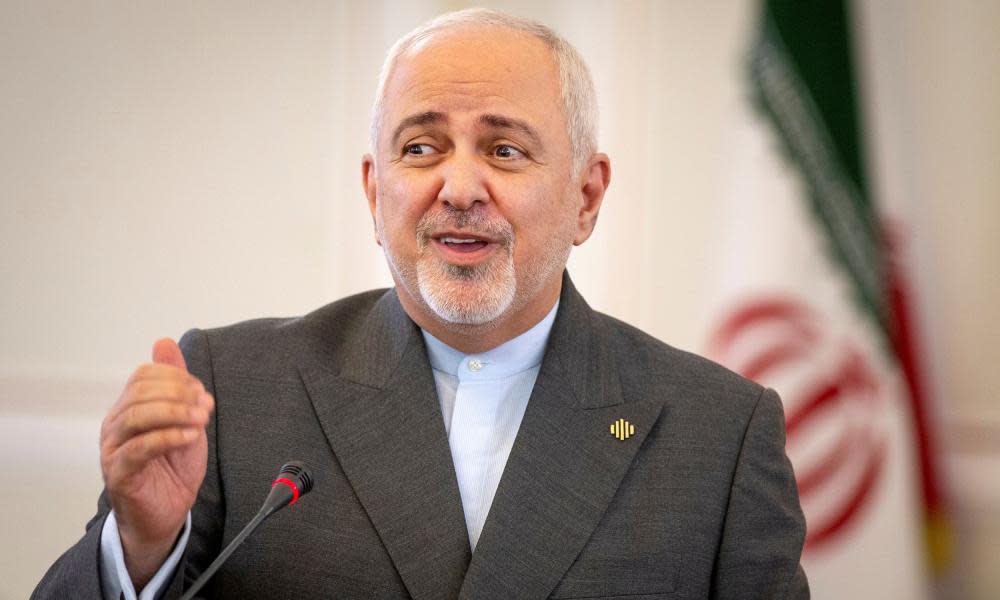Iran's foreign minister sanctioned after declining Trump's 'chat' invitation

Iran’s foreign minister has said he was invited for White House talks with Donald Trump and threatened with sanctions if he did not attend.
Mohammad Javad Zarif told reporters in Tehran: “I didn’t accept and was sanctioned.”
The secretary of state, Mike Pompeo, announced the imposition of sanctions on Zarif on 31 July, two weeks after the foreign minister visited the US for meetings at the Iranian UN mission in New York.
During that trip, he is reported to have met the Republican senator Rand Paul on 15 July, a day after the senator played golf with Trump. According to an account in the New Yorker, Paul conveyed an invitation to the White House for talks. Zarif consulted Tehran, which turned down the offer.
Zarif said on Monday he was warned he would be subject to sanctions if he did not accept the invitation.
“I also said that while [Trump] may want [a] photo op, the US isn’t interested in talks; rather, Iran’s submission. That will never happen,” Zarif said on Twitter.
“An example of US tactics: Threatening to designate somebody in two weeks unless he accepts your invitation to chat in the Oval Office.”
It is unclear whether sanctions will have any practical effect on Zarif. He says he does not have assets outside Iran, and the US is obliged to allow him to travel to the UN. US allies have said they will continue to meet and hold talks with the foreign minister.
Tehran has stressed that Iran already has agreed a lengthy, detailed agreement with the US, in the form of the 2015 nuclear agreement with five other world powers, which Trump withdrew the US from in May last year.
In recent months Trump has repeatedly hinted that if the Iranian leadership was prepared to talk to him directly, they could strike a new deal that would bring Iran great prosperity. In June, he sent that message through Japan’s prime minister, Shinzo Abe, but it was rebuffed by Iran’s supreme leader, Ali Khamenei.
The offer reflects his frequently stated belief that he is uniquely gifted as a dealmaker, and appears convinced that he achieved a diplomatic breakthrough with North Korean leader, Kim Jong-un, despite the fact that North Korea has continued to build its nuclear weapons arsenal after three meetings between Trump and Kim.
Tehran has declared it will breach some of the restrictions on its nuclear programme imposed in the 2015 agreement, unless other parties to the deal, the Europeans in particular, compensate Iran for the economic impact of US withdrawal.
It has allowed its stockpile of low-enriched uranium to grow beyond the limit laid down in the agreement, slightly increased the level at which it enriches uranium, and declared it will restart activity at its heavy water reactor at Arak.

